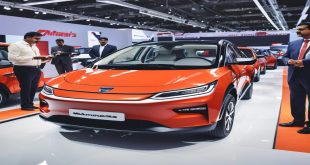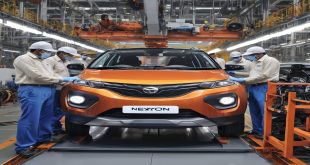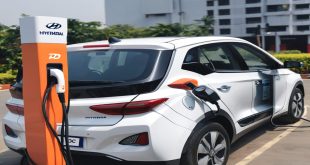Electric vehicle (EV) development has become a major strategy to fight climate change and lessen reliance on fossil fuels in a time of growing environmental concerns and the global shift towards sustainable technologies. And yet the initial cost of buying an electric car continues to be a major deterrent for many buyers even with all of the advantages that come with EVs such as lower emissions in lower the operating costs and improved energy efficiency.
A group of students from the esteemed Punjab Engineering College (PEC) have launched a ground-breaking project with the goal of utilizing cutting-edge manufacturing techniques and technological innovation to increase the affordability and accessibility of electric vehicles (EVs). A group of driven and enterprising students are leading the project which combines engineering knowledge with creative thinking and a dedication to sustainability. Its fundamental idea is to optimize the production of electric vehicle components in a revolutionary way with the ultimate goal of cutting production costs without sacrificing performance or quality.
The student’s proprietary technology promises to revolutionize the electric vehicle industry and speed up the shift to sustainable mobility. It is developed through a combination of advanced manufacturing techniques materials science and computational modeling. The use of additive manufacturing or the 3D printing to create intricate parts for electric cars is at the heart of the student’s inventiveness. When it comes to production, additive manufacturing is more flexible and less expensive than traditional methods which frequently require expensive tooling and machining procedures.
Additive manufacturing allows for the creation of the complex geometries and custom designs with minimal waste and material usage by layering thin sheets of material to build up a three-dimensional object. This lowers production costs while also allowing for more customization and design flexibility to meet the wide range of consumer demands and preferences.
In addition in an effort to further streamline production and reduce expenses the students have investigated additional advanced manufacturing methods like injection molding laser cutting and CNC machining. The students have found creative answers to challenging manufacturing problems by utilizing a multidisciplinary approach that combines knowledge from mechanical engineering materials science and computer-aided design (CAD). This has opened the door for more productive and economical production of electric vehicle components.

Additionally, the students have streamlined the design and optimization process by utilizing digital technology and simulation tools which has reduced the time and resources needed to bring their innovations to market. The students have been able to quickly iterate on their designs identify potential flaws or weaknesses and optimize the performance and efficiency of their components through the use of computer-aided design (CAD) software finite element analysis (FEA) and computational fluid dynamics (CFD) simulations. The student’s breakthrough levels of precision durability and dependability in their electric vehicle components have set new industry standards thanks to their iterative approach to design and optimization.
The technological innovation of the students has far-reaching implications that go well beyond the domain of electric vehicles. These include potential applications in the aerospace automotive healthcare and consumer electronics industries among others. Through their demonstration of the approachs feasibility and scalability the students have created new avenues for the adoption of advanced manufacturing techniques and materials across industries promoting economic growth job creation and innovation.
The student’s initiative also emphasizes the value of experiential education and hands-on learning in promoting entrepreneurship and innovation. Educational institutions like PEC are fostering the next generation of the innovators and the leaders who will shape the future of technology and society by giving students the chance to work on real-world projects collaborate with industry partners and apply their knowledge in practical settings. Through programs like this students are learning critical thinking problem-solving and collaborative skills all of which are crucial for success in the quickly changing global economy of today in addition to technical knowledge and skills.
In summary, the PEC students have shown the transformative potential of education and technology in bringing about positive change and tackling urgent societal issues. They have created a method that could make electric cars more widely available, reasonably priced and environmentally friendly opening the door to a more equitable, cleaner and greener world. This is made possible by their creative manufacturing approach. Initiatives like these are illustrative examples of how innovation teamwork and education can contribute to the creation of a more promising future for future generations as India and the rest of the world gradually shift to a low-carbon economy.,



